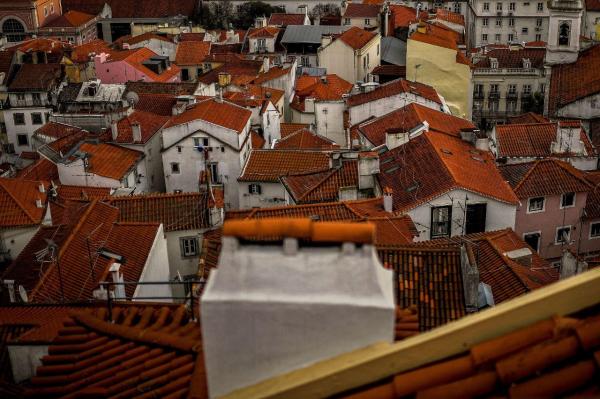The lack of supply in Portugal is one factor to consider so that house prices do not fall in the near future, even in the event of uncertainty and an expected drop in sales. For those who want to take this step, the advice is simple: if the bank does not give you that much, lower your expectations, and choose a smaller or off-center home.
Higher interest rates, lower purchasing power, restrictions on housing loans. The perfect storm for homebuyers is brewing. For now, the major real estate networks in Portugal are still not feeling the effects. But no one is ruling out that the coming months will bring a scenario of a break – or in the best case, “stabilization” – in the number of transactions.
“The market will cool down. It’s normal”, sums up Ricardo Guimarães, Director of Confidencial Imobiliário. The consultant estimates that in the June-August period, 37,900 homes were sold in Portugal, a decrease of 8% compared to the first-quarter result.
However, those responsible for Century 21, Keller Williams (KW) and Era confirmed to CNN Portugal that the company’s results, at least through August, are growing compared to last year – in double digits, inclusive. But they do not hide that the coming months can bring changes to balance sheets.
“The market is resilient and there is no panic. It is normal, from now on, to have a slight deflation,” says Rui Torgal, general manager of ERA in Portugal. Ricardo Santos, who leads Century 21 in Portugal, argues that “market stability is inevitable.” “.
At KW, says Eduardo Garcia e Costa, “growth remains very strong but has slowed in the past four months.” “What is certain is that demand will decrease. The big uncertainty is what will happen to supply,” he adds, given the current context.
Several warning signs emerged from the market. In August, according to the Bank of Portugal, the number of Bank ratings fell for the third month in a row and the Home loans recorded the first slowdown since October 2020.
And if there is between April and June 43,607 homes were traded in Portugal (4.5% more YoY), “in In June, for the first time since February 2021, there was a decrease in the number of transactionswarned the National Institute of Statistics.
Warning bells the real estate sector has unsurprisingly seen, not least because the past few years have seen exceptional growth. “The market has grown a lot in the last couple of years. Any correction that might happen now is not surprising. If I didn’t correct it, it would be strange,” notes Gonzalo Nascimento Rodriguez, a mortgage advisor.
Will housing prices fall? Don’t count on it
If there are fewer sales, housing prices will eventually fall. This will be the first thing that those who, in the current context, are evaluating the purchase will think of. But the best thing is to “get the horse out of the rain”: despite the uncertainty, the houses will not get cheaper.
Three factors explain this perspective of the future: a lack of supply, a lower return on deposits is causing more Portuguese people to invest their savings in real estate, and foreign interest is increasing. From April to June, foreigners bought 2,783 homes in Portugal, accounting for 6.4% of the total transactions.
Then the law of supply and demand does its job. According to Confidencial Imobiliário, during the summer there were only 39,000 homes for sale in Portugal, the lowest number in the last 15 years. Before the epidemic, there were about 60 thousand.
Ricardo Guimarães notes: “I expect that the demand reduction will not be enough to bring down prices.” He says that homes may not be valued as much, but they won’t stop following the trend.
And the numbers, for now, help confirm that: In the second quarter of 2022, according to INE, homes were 13.2% more expensive than last year. Real estate agencies say the average value per transaction is higher, too. “The gap between supply and demand, even with such a small contraction, will not cause a slowdown in terms of prices,” confirms Roy Torgal da Era.
The market does not expect a boost to new construction, not least because higher material costs make this investment less important to businesses. In this way, the potential effects of uncertainty caused by higher inflation and interest rates end up being blurred. The logic is simple: if there is not enough supply, there will be more pressure on prices – and therefore less room for them to fall at the cost of uncertainty.
I want to buy a house. How can I adapt to climbing? lower expectations
Higher interest rates have an effect on the amount families can borrow from banks. If interest is more important to the total pie, and without changing effort rates, there is only one solution left: to pay the same maximum premium, they must effectively reduce the amount allotted to the purchase — which should leave more totals without getting on the loans.
“If they were going to pay more for credit, they could just pay less to buy a house,” summarizes Goncalo Nascimento Rodriguez, a mortgage advisor. And how do you do that when prices are still high? Lower expectations. This is already what is happening with clients who are increasingly fearful and are looking for real estate networks.
People can even put off the decision to buy a home. But there are limits. What we are seeing is a greater need for people to distance themselves from large urban centers,” explains Paulo Cayado, president of the Association of Real Estate Professionals and Companies in Portugal (APEMIP). In Lisbon, sites such as Sobral de Monte Agraço, Torres Vedras or Lourinhã, for example, are searched .
In addition to increasing the search radius, it also reduces the size of the house. “We’re redirecting your preferences,” says Ricardo Souza of the 21st Century.

“Wannabe internet buff. Future teen idol. Hardcore zombie guru. Gamer. Avid creator. Entrepreneur. Bacon ninja.”



